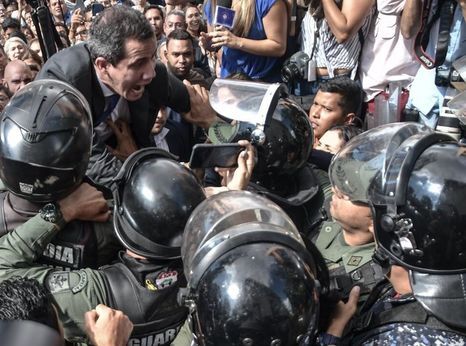Incommunicado detainee now indicted

Please note that Twitter is a massive social media platform in Venezuela, and other communication means are practically inexistent, particularly mail. We advise the use of Twitter to contact authorities in the country. We have addressed this letter to the Venezuelan embassy.
As the world grapples with the COVID-19 pandemic, Nicolás Maduro’s government has used this crisis to further expand and abuse its power. The government has escalated its use of arbitrary detentions of opposition members, real or perceived, as well as other critics. Furthermore, there is evidence of torture, disappearances, and extrajudicial executions committed by the Maduro government.
On 2 April 2020, approximately 15 DGCIM officials raided the home of Maury Carrero. In the process, they took many of the family’s valuables and electronics. The officials advised Maury Carrero’s parents that they were taking her temporarily and would bring her back home, as the search warrant did not include her name on it. Maury Carrero did not return home that night. Since her detention, she was only been permitted an extremely short phone call approximately once a week the first month of detention, during which officials were present the entire time and she was unable to speak freely nor safely about the conditions of her detention. Since she was transferred to National Institute for Women's Guidance (INOF by its acronym in Spanish) facilities on 14 May, officials have denied her access to her family and lawyers under the excuse of the state of alarm that has been in place as response to the COVID-19 pandemic since 13 March 2020.
On 19 May, she was indicted by the prosecution with ‘concealment of firearms’ and ‘association to commit crimes’, both under the Venezuelan Organic Law Against Organised Crime and Financing of terrorism. The indictment was brought before the Second Special Judge with jurisdiction in cases related to crimes associated with ‘terrorism’. She had initially been charged with terrorism, association to commit crime, concealment of firearms and explosives, and concealment of a minor quantity of drugs, but not formally indicted until 19 May.
Maury Carrero’s arrest is another example of the Maduro government’s policy of repression. Intimidation, harassment, torture, arbitrarily detentions and enforced disappearances are common practices of the DGCIM and the Maduro government. In recent years, dozens of opposition politicians have been forced to flee the country and request asylum in the face of threats they have received from the Maduro government; others have been arbitrarily arrested for being related to an opposition leader or activist. Ordinary Venezuelans who dare criticize their government or join protests also face the threat of detention, and some have suffered forced disappearances or have been killed by security forces. In the context of the ongoing COVID-19 pandemic, medical personnel, journalists and others have faced detention after calling attention to new COVID-19 cases or to the scarcity of medical supplies and basic goods.
In last year’s report, Hunger for Justice: Crimes against Humanity in Venezuela, Amnesty International concluded that the selective extrajudicial executions, arbitrary detentions, and deaths and injuries caused by the excessive use of force by Nicolás Maduro’s government as part of a systematic and widespread policy of repression since at least 2017 may constitute crimes against humanity.
Since 2014, Venezuelans have fled in unprecedented numbers in search of safety and a dignified future abroad. By March 2020, over 5 million had fled the country. Due the COVID-19 crisis, many Venezuelans who previously left have been forced back to the country due to collapsing economies and a lack of dedicated support for refugees impacted by the pandemic and its secondary effects. They are also at risk of government retribution.